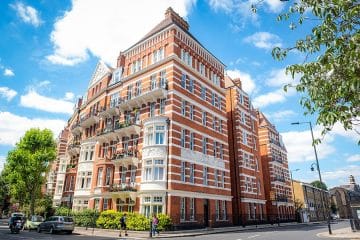You’ve found the perfect luxury villa in Abu Dhabi – perhaps a stunning waterfront property on Saadiyat Island or an architectural masterpiece in Al Raha Beach. The question isn’t whether you can afford it, but rather what’s the smartest way to structure the purchase. Should you lease vs finance luxury villa Abu Dhabi properties, and what are the real implications for your wealth strategy?
Having facilitated over £4.2 billion in luxury asset financing, I’ve seen countless high-net-worth individuals grapple with this exact decision. The UAE’s property market offers unique opportunities, but it also presents distinct challenges – especially for non-residents looking to optimize their investment approach.
What makes Abu Dhabi particularly intriguing is the emirate’s strategic position as both a luxury lifestyle destination and a robust investment market. Unlike many global cities where financing options are limited, Abu Dhabi offers sophisticated investors multiple pathways to ownership – each with distinctly different financial implications.
Understanding Abu Dhabi’s Luxury Villa Market

The luxury villa financing options Abu Dhabi landscape has evolved dramatically over the past decade. With developments like Yas Island, Al Reem Island, and the Cultural District attracting global investors, the emirate has positioned itself as a premier destination for luxury real estate investment.
Current market dynamics show luxury villas ranging from AED 5 million to AED 50 million+, with waterfront properties commanding premium pricing. What’s particularly attractive for international buyers is Abu Dhabi’s non-resident property finance Abu Dhabi policies, which are among the most accommodating in the Gulf region.
Key Market Drivers
The best way to buy a villa in Abu Dhabi depends heavily on understanding these fundamental market characteristics:
- Zero personal income tax for residents
- Freehold ownership rights for non-GCC nationals in designated areas
- Strong rental yields typically ranging from 5-8% annually
- Currency stability with the dirham pegged to the US dollar
From my experience working with international clients, I’ve noticed that many overlook the strategic advantages of Abu Dhabi’s regulatory environment. The emirate’s commitment to attracting foreign investment has created unusually favorable conditions for luxury property acquisition.
Leasing vs. Financing: The Core Differences
When evaluating villa lease vs mortgage Abu Dhabi options, you’re essentially choosing between two fundamentally different wealth strategies.

Let me break down the key distinctions:
Long-Term Villa Leasing
Long-term villa leasing Abu Dhabi typically involves agreements spanning 3-10 years with annual payments. This approach offers:
Advantages:
- Lower upfront capital requirement – typically 5-10% of property value
- Flexibility to relocate without sale complications
- Professional maintenance often included
- No property transfer fees or registration costs
Disadvantages:
- No equity building – payments don’t contribute to ownership
- Limited customization rights
- Rental escalation clauses can increase costs over time
- No capital appreciation benefits
Villa Financing Options
Financing luxury property in UAE through mortgage arrangements provides a pathway to ownership with these characteristics:
Advantages:
- Equity accumulation with each payment
- Capital appreciation potential
- Full customization and modification rights
- Potential rental income if not owner-occupied
- Legacy asset for wealth transfer
Disadvantages:
- Higher upfront costs – typically 20-25% down payment
- Interest rate exposure over loan term
- Property maintenance responsibility
- Sale complexity when liquidating
Abu Dhabi Villa Finance Comparison Table
Abu Dhabi Villa Finance Comparison
Comprehensive comparison for luxury villa acquisition strategies
| Factor | Leasing | Financing | Best Scenario |
|---|---|---|---|
| Upfront Cost | 5-10% of value | 20-25% of value | Short-term flexibility |
| Monthly Outlay | Fixed rental | Mortgage + maintenance | Predictable vs. ownership |
| Equity Building | None | Progressive ownership | Long-term wealth building |
| Flexibility | High | Moderate | Lifestyle preferences |
| Tax Benefits | Limited | Depreciation allowances | Ownership advantages |
| Exit Strategy | Simple lease termination | Property sale required | Depends on market timing |
Best Financing Strategies for Non-Residents
The villa investment strategies Abu Dhabi landscape offers sophisticated investors several creative financing approaches. Based on my three decades in luxury asset financing, here are the most effective strategies:
Securities-Based Lending
For clients with substantial investment portfolios, securities-based lending represents one of the most cost-effective approaches. This strategy allows you to:
- Borrow against existing investments without triggering taxable events
- Access rates from 3.25% – often lower than traditional mortgages
- Maintain investment growth while accessing liquidity
- Avoid complex income verification processes
I recently structured a $15 million villa acquisition in Abu Dhabi using this approach, allowing the client to maintain their equity portfolio while securing the property at exceptionally favorable rates.
Blended Financing Facilities
The most sophisticated approach involves combining multiple funding sources:
- Single stock loans for the lowest borrowing costs
- Traditional UAE mortgage for the base financing
- Bridging finance for immediate completion
This strategy optimizes borrowing costs while maintaining maximum flexibility – crucial for expat villa purchase options in Abu Dhabi.
UAE Bank Financing
UAE bank loans for luxury villas have become increasingly competitive, with several institutions offering attractive terms for qualified non-residents:
- Emirates NBD – up to 80% LTV for UAE residents, 75% for non-residents
- ADCB – competitive rates with relationship banking benefits
- FAB – streamlined processes for high-net-worth clients
- Mashreq Bank – flexible terms for international income sources
Villa mortgage eligibility Abu Dhabi typically requires:
- Minimum income of AED 25,000 monthly for residents, higher for non-residents
- Debt-to-income ratio below 50%
- Clear credit history in home country
- Property insurance and life insurance coverage
Cost Analysis: Which Option Maximizes Your Returns?

Let’s examine a practical scenario using real market data. Consider a luxury villa in Al Reem Island valued at AED 10 million:
Leasing Scenario
- Annual lease cost: AED 500,000 (5% of property value)
- 10-year total cost: AED 5,000,000
- Opportunity cost: Capital invested elsewhere earning 7% annually
- Net position: Investment returns minus lease payments
Financing Scenario
- Down payment: AED 2,500,000 (25%)
- Mortgage amount: AED 7,500,000 at 4% for 20 years
- Monthly payment: AED 45,471
- Total interest cost: AED 3,913,040 over loan term
- Property appreciation: Assuming 3% annually
Cost Comparison Analysis
The cost comparison lease vs mortgage Abu Dhabi reveals that financing typically provides superior long-term returns when:
- Property appreciation exceeds 2.5% annually
- Alternative investments don’t significantly outperform real estate
- Tax benefits from ownership can be utilized
- Rental income potential exists
However, leasing makes sense when:
- Lifestyle flexibility is prioritized
- Alternative investments offer exceptional returns
- Property market outlook is uncertain
- Liquidity preservation is crucial
Expert Recommendations and Strategic Considerations
After facilitating luxury property acquisitions across multiple jurisdictions, my recommendation for renting vs buying luxury villas in Abu Dhabi depends on three key factors:
Investment Timeline
Short-term (1-3 years): Leasing typically provides better flexibility and lower total costs.
Medium-term (3-7 years): Financial analysis required – often neutral between options.
Long-term (7+ years): Financing usually delivers superior wealth outcomes.
Wealth Optimization Strategy
For ultra-high-net-worth clients, I often recommend a hybrid approach:
- Initial lease for 2-3 years to establish UAE residency
- Securities-based financing for eventual purchase
- Portfolio diversification across multiple emirates
This strategy maximizes flexibility while building toward ownership.
Risk Mitigation
Currency hedging becomes crucial for international buyers. The dirham’s USD peg provides stability, but income in other currencies requires careful consideration.
Legal structuring through UAE companies can provide additional benefits for large acquisitions, though this requires specialist legal advice.
Frequently Asked Questions
Can non-residents get mortgages for Abu Dhabi villas?
Yes, several UAE banks offer villa mortgage eligibility Abu Dhabi for non-residents, typically requiring 25-30% down payment and proof of international income. Rates are generally 1-2% higher than resident rates.
What’s the minimum down payment for luxury villa financing in Abu Dhabi?
UAE banks typically require 20-25% for residents and 25-30% for non-residents. However, alternative financing through securities-based lending can reduce this requirement significantly.
Are there tax benefits to owning vs. leasing in Abu Dhabi?
Abu Dhabi doesn’t impose personal income tax, but property ownership allows depreciation benefits and potential capital gains exemptions under certain conditions. Consult qualified tax advisors for jurisdiction-specific implications.
How long does villa mortgage approval take in Abu Dhabi?
Standard bank mortgages typically require 3-6 weeks for approval. Alternative financing through international lenders can be significantly faster – sometimes within 2-3 weeks.
Can I use cryptocurrency for villa down payments?
Some developers accept cryptocurrency, though traditional banks don’t. Digital asset lending against crypto holdings provides an alternative approach for accessing liquidity without selling positions.
What are the ongoing costs of villa ownership in Abu Dhabi?
Expect 2-3% annually for maintenance, insurance, and service charges. Luxury developments often have higher service charges but include premium amenities and concierge services.
Is lease-to-own available for luxury villas in Abu Dhabi?
Lease-to-own villas in Abu Dhabi arrangements exist but are uncommon in the luxury segment. Most developers prefer direct sales or traditional leasing arrangements.
The decision between leasing and financing luxury villas in Abu Dhabi ultimately depends on your individual financial strategy, investment timeline, and lifestyle requirements. What’s certain is that Abu Dhabi’s sophisticated financial infrastructure provides multiple pathways to luxury property enjoyment.
For those seeking Abu Dhabi high-end villa financing solutions, the key lies in understanding how each option aligns with your broader wealth management objectives. Whether you choose the flexibility of leasing or the wealth-building potential of ownership, ensure your decision supports your long-term financial goals.
Ready to explore luxury villa options in Abu Dhabi? Contact Paul Welch directly at Paul.welch@millionplus.com for expert financing guidance, or browse our curated selection of premium properties at millionplus.com where exceptional assets find their perfect owners.







